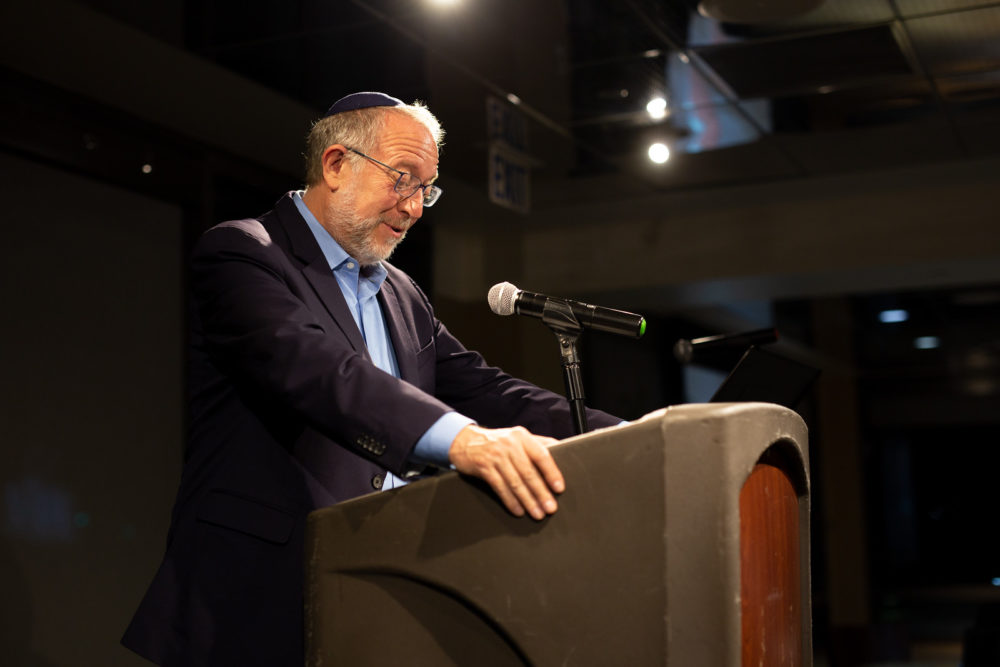
On October 30, 2018, more than 200 people gathered at LMU to commemorate Kristallnacht, the Night of the Broken Glass, and this year’s event was significant for many reasons. We marked the 80th anniversary of the infamous night of Nazi violence and vandalism against German Jews just three days after 11 people were killed at Tree of Life Synagogue in Pittsburgh – the deadliest attack on Jews in American history. This year is also the 70th anniversary of the founding of Israel, and we welcomed American-born Israeli journalist and author Yossi Klein Halevi, who spoke about his latest book, “Letters to My Palestinian Neighbor,” and the need to better understand each other in order to find common ground.
As part of the program, Renee Florsheim, associate dean, College of Business Administration, led a candle lighting ceremony. Holli Levitsky, director of Jewish Studies, invited interfaith clergy to stand with Florsheim as a way for the community to stand in solidarity for victims of Kristallnacht, the Holocaust, and the Pittsburgh synagogue shooting.
Halevi’s talk began with him addressing the recent attack and other mass shootings as a recurring part of American Life. “Pittsburgh, Las Vegas, Orlando, Parkland, and Charlottesville are all part of a larger ‘American story,’” said Halevi. “A story that includes collapsing political civility, debates around gun control, and a president who incites with his rhetoric.”
Halevi went on to connect Pittsburgh to a centuries-old history of anti-Semitism in all parts of the world. “Each episode has its own political and social context, but it’s still the same story of blaming Jews collectively for societal ills.” He continued, “The survival of anti-Semitism is as astonishing as the survival of the Jewish people.”
While Halevi did speak about a surge in anti-Semitism, he was careful to not draw direct parallels between Kristallnacht and Pittsburgh. The Tree of Life murders were not state-sponsored, but rather the work of one man. In 1938, many Germans did little to defend their Jewish neighbors in contrast to the outpouring of support from Muslims, Christians, and other faith communities across the country and around the world after Pittsburgh.
In “Letters to My Palestinian Neighbor,” Halevi uses his own personal narrative to tell the story of Israel and the Jewish people. He takes this approach in hopes that Palestinians will share their personal perspectives in return. When it comes to resolving the Israeli-Palestinian conflict, Halevi strongly believes that the dialogue needs to shift from attacking each other’s narratives to finding a common ground.
“Knowing each other’s story is a prerequisite for peace,” says Halevi. In an increasingly polarized world, this message is more pertinent than ever before.
During a lunchtime talk with students from the courses of Professors Margarete Feinstein and Mark Diamond, Halevi shared his own story growing up as the child of a Holocaust survivor, and how that identity helped to shape the formation of a more mature understanding of the peace process.
A special thank you to the Martin Gang Institute for Intergroup Relations, the Academic Engagement Network, the Academy for Jewish Religion California, the Academy of Catholic Thought and Imagination, University Synagogue, Jewish Life, Peace and Justice Studies, and the Journalism Program for generously sponsoring this event.



